Asset vs Share Sale
In any acquisition involving a vendor company, a prospective purchaser will need to consider whether to acquire the equity in the vendor company (Share Purchase) or the assets (i.e. the business or the tangible assets themselves) of the vendor company (Asset Purchase).
The type of asset being purchased can have a significant impact on the purchaser’s decision. For example, an Asset Purchase is more common where the asset is real property, whereas a Share Purchase is more common when the asset is a business.
Before making the final decision on an Asset vs Share Purchase, a purchaser should undertake legal and financial due diligence, and specifically determine the:
- tax benefits and consequences of either transaction,
- ideal purchasing structure, and
- risk of pre-completion liabilities of the vendor company and whether these can be adequately managed via provision of contractual vendor warranties and/or security in the form of personal guarantees provided by the directors/related persons of the vendor company.
Asset Purchase
A purchaser may prefer an Asset Purchase because, unless it is otherwise agreed, the purchaser will not be responsible for pre-completion liabilities of the vendor company, which can be unknown at the time of sale. This is the primary benefit of an Asset Purchase.
The primary disadvantage of an Asset Purchase is that the transaction can be a much more complicated, costly and lengthy, particularly in a business acquisition that requires the assignment/novation/transfer of all assets and contracts of the vendor company. This becomes more complex when key contracts may not be capable of assignment due to non-agreement by the third party to the contract.
Share Purchase
A purchaser may prefer a Share Purchase in circumstances where there are tax benefits, core agreements are unable to be assigned/novated to a new entity or commercial reasons, such as ease of the transaction or not wanting to advise third parties of a change of ownership (unless contractually bound to do so).
The primary benefit of a Share Purchase is that the transaction itself is generally fairly straight forward, as there is no need to assign/novate assets or contracts of the vendor company, or transfer employees in a business acquisition (subject to any third party consent that is required under a third party contract, such as a Lease). You are simply purchasing shares.
The primary, and significant, disadvantage is that in a Share Purchase a purchaser will not only acquire all assets, but will also acquire all pre-completion liabilities. While due diligence can identify some of these potential liabilities, and the Sale Agreement can assist in reducing the risk with vendor warranties and security:
- the purchaser would still need to enforce any warranties under the Sale Agreement if same are breached and be successful in said claim and recovery (subject to negotiation of set-off provisions and incorporation of breaches into value-creating milestones/earn-outs in the Sale Agreement), and
- liabilities that were not considered, and therefore not covered in the warranties, may arise in the future.



























